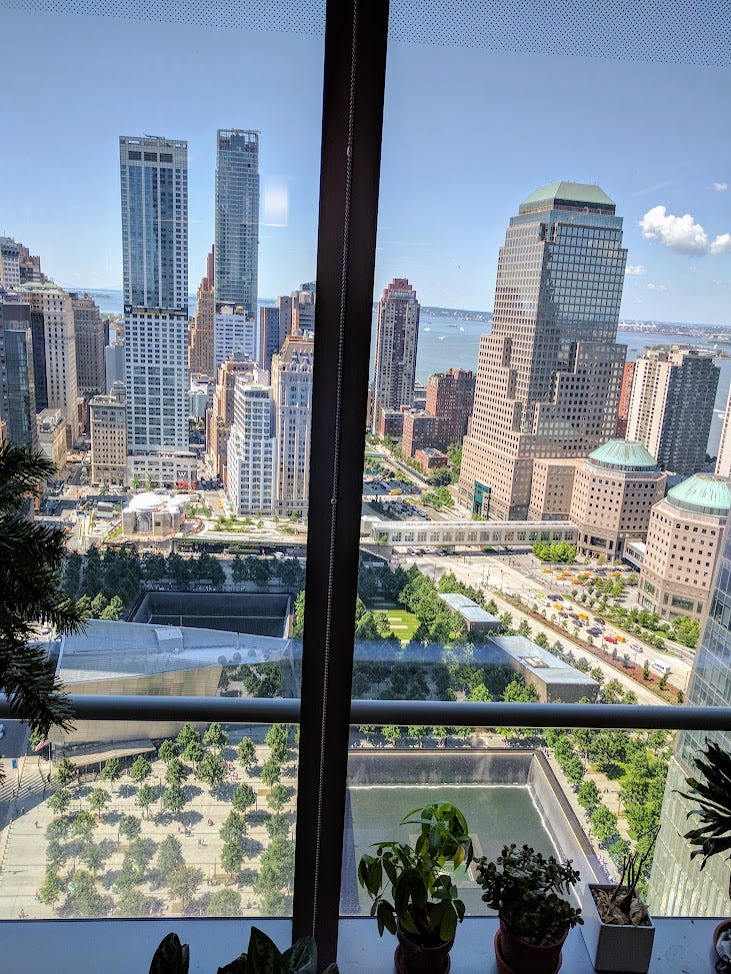The last time I blew my career up was in 2017.
When 2017 started, I had been working as a reporter for Fast Company magazine for six-and-a-half years or so. I was covering a lot of emerging technology stories (biotech, autonomous vehicles, AI, that kind of thing) and was based in Los Angeles. My work for Fast Company was supplemented by steady freelance work doing things like writing op-eds for the Los Angeles Times, writing for other magazines and taking the occasional corporate gig here and there.
I was also restless. I had developed a book proposal with an agent1 that was straying far from the original book concept and deep into the woods of I-don’t-want-to-spend-the-next-year-writing-this. My journalism career had stalled. Readers and my editors loved my work, but there were limited growth opportunities at my own publication and getting a job at a rival publication would have required moving back to New York or, worse yet, to the Bay Area2.
I needed a change.
My career plans were guided by three core facts:
I come from a lower-middle class family with disabled parents. There’s no family money to fall back on.
I like nice things. I like money. Money in and of itself may be useless, but it makes many things easier and gets you neat shit while helping you make it through the leaner times. Go money.
I hate boredom and routine workdays. I mean… I’ll take it if it’s the only options, but seriously… give me the cool weird shit to work on. Lots of cool weird shit. Cool weird shit all day. Yes sir.
All of which, combined, were a big combined signal to start working in advertising.
And a quick disclaimer here: This was in the 2017 economy. I’m a big white dude with tattoos, a distinctive last name and a really good portfolio. I’m reasonably good at schmoozing, know a lot of people and have a lot of cultural overlap with the kind of people who do hiring at ad agencies. All this is to say that it was easy for me to get job interviews at ad agencies, but mileage may have varied for other people.
Anyway, a few interviews at a few agencies later, I ended up in a senior copywriter role at R/GA. R/GA is an iconic ad agency whose Los Angeles office at the time had a wide range of clients but there was a whole bunch of business development and client stuff going on behind the scenes that I was unaware of going in. That would be important later, but for now there was a new job3! I was making about $30,000 more than I was as a journalist, so I was happy about that.
And that was how I blew up my journalism career.
I told my editors in New York about the new job and gave notice. They seemed upset but a little unsurprised; I would be unsurprised also in their shoes. I was one of the last of the early 2010s cohort of Fast Company writers to leave the masthead; most of the editors and writers I worked with departed over the next year or too. This is not very surprising as journalism has more job stability than advertising but less job stability than most of corporate America; writers and editors regularly swap publications every few years or so.
So it was off to the advertising world. And off to that new adventure!
Coming up next: How I blew my career up twice in one year.
PS: Did you ever blow up your career? How did your story go? Let us know in the comments!
An explainer: The economics of writing books, especially non-fiction books, runs pretty counter to the way almost everyone who’s not a professional writer thinks it works. Writing non-fiction books pays relatively little unless you luck/design your way into writing the sort of business, inspirational and productivity books that are sold in airport bookstores. The real money for authors is in secondary income from writing books—things like speaking fees, adapting their books into movies or other media, consulting deals and things like that. A non-fiction book is essentially a very fancy business card that also generates some money on the side.
I moved from New York to Los Angeles while I was writing for Fast Company. Now I live in Chicago as part of a completely accidental tour of America’s great cities. Chicago is wonderful and an amazing city to work out of, so 110% happy about this. Also, if you have to fly frequently for work…. O’Hare is an awesome airport.
Job loyalty and pay scales work very differently in advertising than in many other industries. Most advertising agencies are set up with the express business model of rapidly hiring and rapidly laying off employees as client account work comes and goes. Mid- and senior-level advertising agency employees are typically paid more than equivalent roles in the marketing and public relations world because there is a clear understanding that employees may lose their jobs on short notice regardless of performance. In turn, there is little expectation of loyalty at most agencies with winks and nods at regular jobhoppers.





